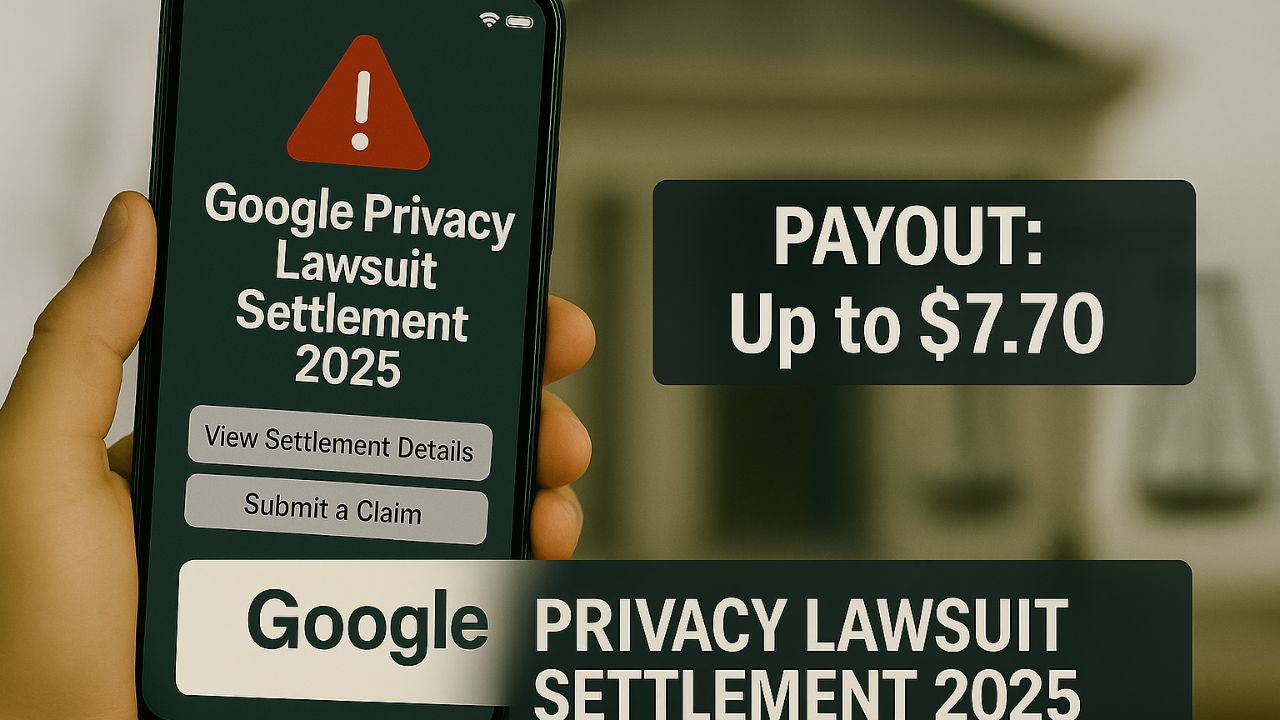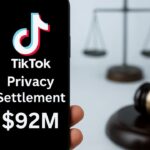Did Google track your location even after you turned it off?
You may be eligible for a data privacy settlement as part of Google’s multi-million dollar payout to users. With growing concerns over how tech giants handle personal data, two major settlements involving Google—worth $23 million and $62 million—have made headlines. Here’s what you need to know.
Google Location Data Lawsuit 2025 Overview
| Feature | Details |
|---|---|
| Settlement Title | Google Location Data Lawsuit Payout 2025 |
| Who Will Get It | Eligible U.S. residents with Google accounts |
| Total Settlement Amount | $62 million (Location Tracking) and $23 million (Search Sharing Case) |
| Average Individual Payout | Up to $7.70 (for Referrer Header Case only) |
| Eligibility Window | January 1, 2014 – December 4, 2023 (for Location Data Lawsuit) |
| Payment Date | No confirmed date yet (as of May 2025) |
| Category | Financial Assistance / Data Privacy |
What Is the Google Location Data Lawsuit About?
The lawsuits against Google stem from accusations that:
- Google tracked users’ locations, even when they had explicitly turned off Location History settings.
- It shared search and personal data—including names, contact info, and possibly even credit card details—with third parties.
- This exposed users to potential identity theft, unauthorized tracking, and privacy violations without user consent.
As a result, two class action settlements were approved:
- $23 million for the Referrer Header Search Data Lawsuit.
- $62 million for the Location Tracking Lawsuit finalized in April 2024.

Who Is Eligible for a Payout?
To qualify for the settlements, you must meet the following criteria:
You reside in the U.S.
You used a mobile device where location history was turned off.
Google stored or accessed your location data between:
- Jan 1, 2014 – Dec 4, 2023 (Location History Lawsuit)
- Oct 26, 2006 – Sep 30, 2013 (Referrer Header Settlement)
For the $7.70 payout under the Referrer Header case, you must have submitted a valid claim by the deadline.
How Much Will You Get?
There’s no individual compensation for the $62 million Location History lawsuit—those funds go to nonprofits promoting privacy rights. However:
- For the $23 million Referrer Header case, each eligible user could receive up to $7.70.
- If fewer people submit claims, the amount may go up.
- Any unclaimed funds may be redistributed to other users or donated to privacy-focused organizations.
When Will the Google Settlement Payments Arrive?
As of May 2025, no official payment date has been announced for the $62 million Location Data settlement.
The Referrer Header case ($23 million) was approved in October 2023. Payouts are expected to follow typical timelines (within 6–9 months post-final approval), though this is subject to appeals or administrative delays.
Key Takeaways from the Settlement
- Millions of Americans may be affected by Google’s data tracking practices.
- Only one settlement offers individual payments (Referrer Header case).
- For the larger $62 million settlement, funds go to nonprofits, not individuals.
- The settlement raises awareness about digital rights and privacy policies.
FAQs – Google Data Lawsuit Payouts
Only under the $23M Referrer Header case. The $62M settlement funds nonprofits.
If you used a mobile device with Location History off from 2014 to 2023, you may qualify.
Yes, for the Referrer Header case. But future settlements may emerge.
You will not receive any payout unless you submitted a valid claim.
They are allocated to nonprofit organizations focused on internet and privacy rights.
Final Thought – Protect Your Privacy
This lawsuit is a wake-up call about how tech companies handle personal data. While not everyone may receive a check, it’s a reminder to:
- Regularly review your app permissions and privacy settings.
- Stay informed about class-action settlements involving data use.
- Be cautious about sharing personal information online.
| Homepage | sleepauthorities.com |
If you believe you may qualify for a future tech privacy settlement, stay subscribed to legal claim sites or check the CRA and FTC portals regularly. Protecting your data starts with awareness.





